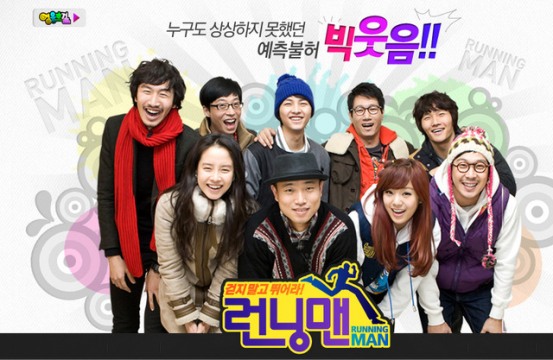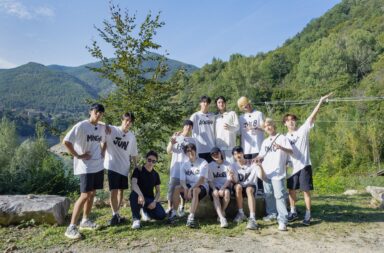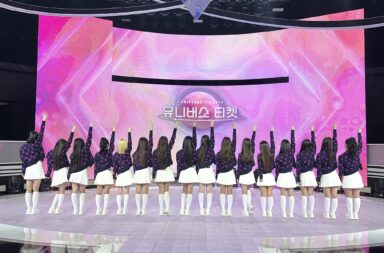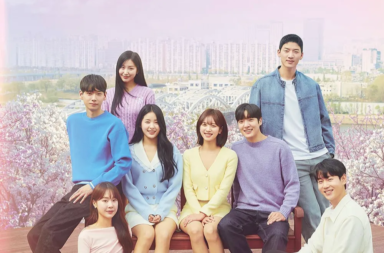When we look at an idol group’s role in the Korean pop industry, it extends further than just producing music. In the K-pop world, specifically with girl and boy groups, dancing in robotic synchronization and belting out pop tunes just don’t cut it. Along with in synch choreography, addictive hooks, and a pretty face (or at least the willingness to go a surgeon) appearing on various variety shows is a part of the job description. At first I was surprised at the sheer amount of television appearances all these idols had, but as I got more involved in the fantastical magical land that is K-pop I understood why this is so.
Variety game shows are huge in Korean entertainment with shows like Infinity Challenge, Running Man, and 1 Night 2 Days gaining a lot of popularity not just in Korea, overseas as well. Such shows usually include idols as guests and make them do really odd things, like engage in a giant adult version of hide and go seek. Of course at the end of the day we fans are happy and entertained, but I always wondered why musicians were doing comedy T.V.? Before K-pop, all the artists I knew, at most, would be a judge or a host on a music reality program; never did they go out and roll around in mud. But I loved it; I loved how the idols I saw confidently swagger on stage, singing their souls out and dancing the night away could act like ten year old kids on T.V.
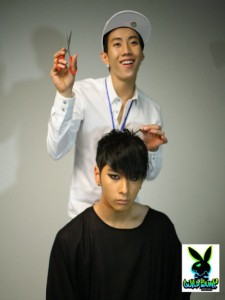 That was when I realized why idols are on these shows. It’s not just to promote their newest album or single, like what Big Bang and Shinhwa are doing right now, but also bridge that gap between fan and idol. To show to their fans, “Look at us, we’re human too and we’re not always perfect, but because of our minor imperfections it’s easier for you to love us and connect to us on a personal level.” Subi previously wrote an article on how she felt that variety appearances negatively impact idols and their image, but I would have to disagree. I believe it has the opposite effect, with boy bands one doesn’t necessarily have to enjoy the music to enjoy the group. For example, I know quite a lot about 2PM and follow them to an extent, but I never liked any of their songs nor did I ever follow them for their musical capabilities. I started watching Wild Bunny and Idol Army in which these seven bumbling beasts would goof around and be hilarious. I laughed along with their antics and I grew to admire them and their personalities. However, the images that most idols portray on these variety shows are just part of a larger picture and concept that they are stuck with as a K-pop group.
That was when I realized why idols are on these shows. It’s not just to promote their newest album or single, like what Big Bang and Shinhwa are doing right now, but also bridge that gap between fan and idol. To show to their fans, “Look at us, we’re human too and we’re not always perfect, but because of our minor imperfections it’s easier for you to love us and connect to us on a personal level.” Subi previously wrote an article on how she felt that variety appearances negatively impact idols and their image, but I would have to disagree. I believe it has the opposite effect, with boy bands one doesn’t necessarily have to enjoy the music to enjoy the group. For example, I know quite a lot about 2PM and follow them to an extent, but I never liked any of their songs nor did I ever follow them for their musical capabilities. I started watching Wild Bunny and Idol Army in which these seven bumbling beasts would goof around and be hilarious. I laughed along with their antics and I grew to admire them and their personalities. However, the images that most idols portray on these variety shows are just part of a larger picture and concept that they are stuck with as a K-pop group.
K-pop idols rarely have autonomy or choice in their music. Their image, choreography, and music are usually pre-determined by their entertainment company and they are usually obliged to go along with it. Of course we have certain exceptions that deviate slightly from this K-pop norm such as the Brown Eyed Girls and Epik High, but the vast majority of idols have a pre-determined formula that they adhere to. K-pop idols, as harsh as it may sound, are not solely musicians in the sense that the only thing they sell is their songs and musicality; they are also a product for us fans to consume. Along with a certain musical style that they adopt, they have a predetermined image that they follow whether it is the troll, beast, or aegyo idols. And variety shows in turn allow them to milk that image to its fullest extent and gain the adoration of fans.
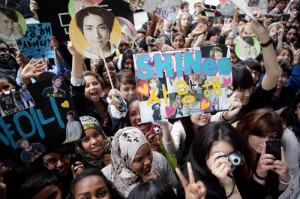 Through variety shows, idols can portray a ‘different’ side than their stage image. It gets to us fans who think that this procured image of them goofing around and being silly might be the ‘real’ idols. Of course it could or could not be their actual personality because Korean variety shows are often accused of being scripted, but none of us know these idols personally enough to know for sure. But these variety shows give us an illusion that we do know them on an intimate level. That in turns allows us to become even more hardcore fans of a group because we develop an emotional bond with them. This is exactly what the entertainment companies want; they want the fans to become emotionally invested with the members of a group so that these fans in turn can buy more merchandiseand products relating to the group or artist. In a BBC article, Korean entertainment companies have admitted that they rake in a lot more revenue through concerts and advertising than just music sales alone. Entertainment companies rely on these extra sources of revenue to fund their groups and in order to utilize that they need the deep investment of fans.
Through variety shows, idols can portray a ‘different’ side than their stage image. It gets to us fans who think that this procured image of them goofing around and being silly might be the ‘real’ idols. Of course it could or could not be their actual personality because Korean variety shows are often accused of being scripted, but none of us know these idols personally enough to know for sure. But these variety shows give us an illusion that we do know them on an intimate level. That in turns allows us to become even more hardcore fans of a group because we develop an emotional bond with them. This is exactly what the entertainment companies want; they want the fans to become emotionally invested with the members of a group so that these fans in turn can buy more merchandiseand products relating to the group or artist. In a BBC article, Korean entertainment companies have admitted that they rake in a lot more revenue through concerts and advertising than just music sales alone. Entertainment companies rely on these extra sources of revenue to fund their groups and in order to utilize that they need the deep investment of fans.
In conclusion, the variety shows our favorite idols appear on are no more than just another medium for us fans to access our idols. It in turn makes us even more invested in said idol and in light of recent events; such involvement can be a negative thing.
(Sources:BBC)
